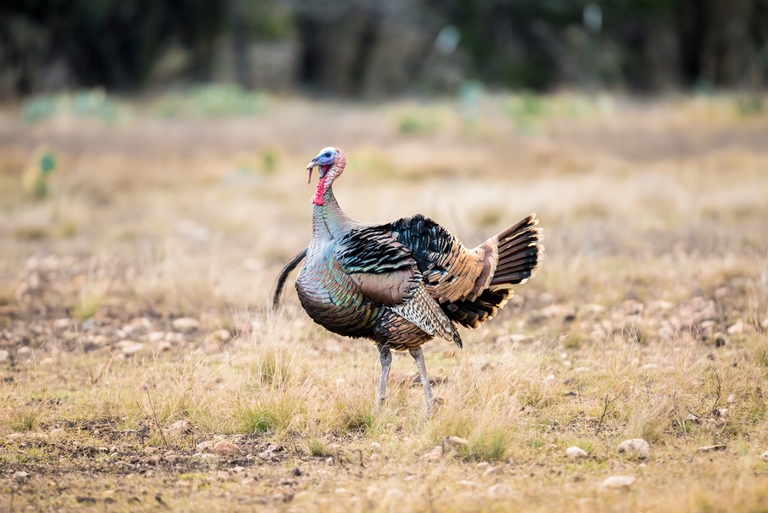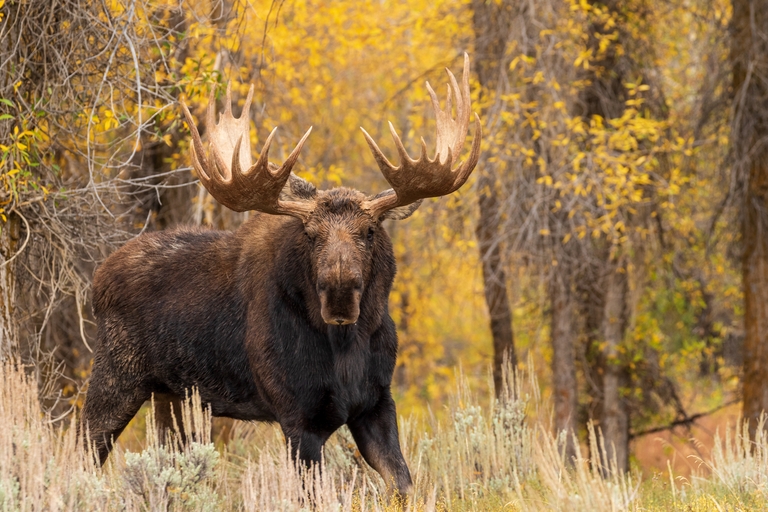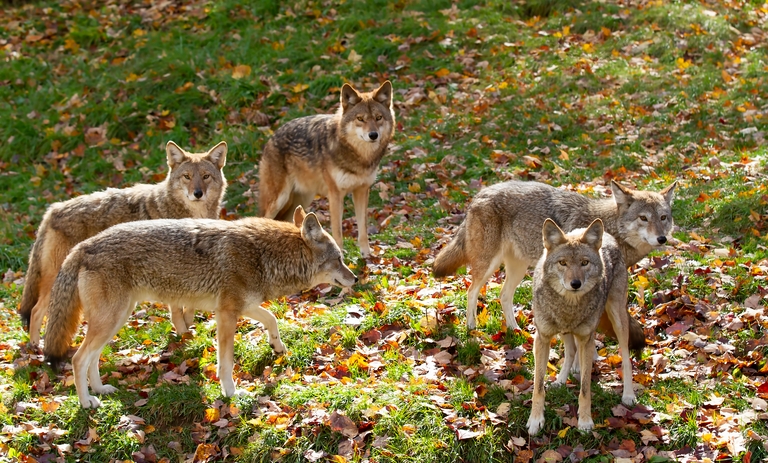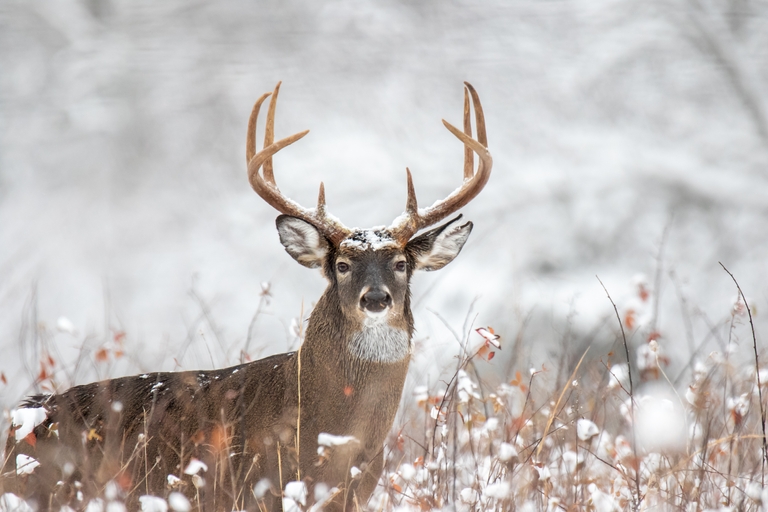When Is Small Game Hunting Season, Michigan Hunters?

Small game hunting can mean big excitement. Michigan offers some of the best small game opportunities in the country, with long seasons and plentiful game across the state.
I'll go over the small game hunting season Michigan has so you can plan your next hunt. We'll also share some tips on what not to do — to help you hunt smarter and safer.
Let's start with one of Michigan's favorite small game animals: the squirrel.

Squirrel Season in Michigan
The squirrel season in Michigan runs from September 15 through March 31 for fox and gray squirrels, giving you a good, long time to get outside and enjoy the woods. You can also hunt ground squirrels year-round.
The state allows a daily bag limit of five and a possession limit of ten squirrels, either fox or gray.
Squirrel hunting teaches beginners patience, marksmanship, and observation — skills that transfer well to other types of hunting. It's also an excellent way to scout deer territory in the early fall before archery season starts.
Squirrels are active in the early morning and late afternoon, mostly around hardwood trees with acorns and hickory nuts. The animal's meat is lean, mild, and surprisingly good in stews, braised, or, my favorite — cooked in a pressure cooker and fried.

When are Rabbit and Hare Seasons?
Just like squirrels, the cottontail rabbit and snowshoe hare season runs from September 15 through March 31.
These fast, unpredictable critters love thick cover, making them a fun challenge for small game hunters. Rabbits hang around brush piles, fencerows, or the edges of old fields.
I've had good luck flushing them out with a hunting partner on one side while I'm stalking the other. It's also common to use hounds to help track and push rabbits toward the shooter.
Snowshoe hares, which turn white in the winter, are more common in northern Michigan and the Upper Peninsula. Their season lines up with cottontails, but you'll want snow on the ground to make tracking easier.
Other Small Game Seasons to Keep on Your Radar
When you want to round out your hunting calendar, Michigan has plenty more small game seasons worth exploring. These include spring turkey season, my personal favorite, plus ruffed grouse and woodcock seasons.
Ruffed Grouse
Ruffed grouse season opens September 15 and runs through November 14, then reopens from December 1 to January 1. These fast-flying birds are often found in aspen stands and thick brush, and they can give your reflexes a serious workout.
Most hunters will hunt grouse with a dog, moving slowly and listening for the telltale "whir" of wings as the grouse is flushed.
Woodcock
Woodcock season is short, typically from late September through late October, and overlaps nicely with grouse. These migratory birds prefer moist soils and young forests, and they're known for their erratic flight patterns, making them a fun challenge with a shotgun.
Get yourself HIP-certified (Harvest Information Program) before hunting woodcock — it's required for migratory bird hunts.

Waterfowl Seasons in Michigan
The rules are a little different when hunting waterfowl compared to small game hunting season. Michigan has specific rules for waterfowl that differ from other types of game birds. You'll need a Michigan base license, a state waterfowl license, and a Federal Duck Stamp to hunt ducks and geese.
The early teal season kicks off in early September, followed by regular duck seasons that typically run from late September through December, depending on your zone. Goose season also opens in September and often has late-season dates that run into January.
Because Michigan waterfowl season will vary by region (North, Middle, and South zones), check Michigan DNR's official zone maps before you plan a hunt.
Waterfowl hunting also requires non-toxic shot and often includes hunting over decoys, calls, and sometimes from blinds or boats. It's a different experience from hunting upland game, but the variety keeps things exciting throughout the fall.
Licensing and Requirements
Before you head out, make sure you have all your paperwork in order. All small game hunters in Michigan must have a base license covering most small game species.
If you plan to hunt ducks or geese, you'll also need a Michigan Waterfowl License and a Federal Duck Stamp. Some seasons require additional validations, so check the most recent regulations on the Michigan DNR website.
You'll also need a hunter safety certificate if you were born after January 1, 1960. If you already have yours, we recommend brushing up with an online course through Hunter-Ed if it's been a while.

Where to Hunt Small Game in Michigan
Michigan offers plenty of public land options for small game hunters, especially if you don't have access to private property.
State Game Areas (SGAs)
There are dozens of SGAs scattered throughout the Lower and Upper Peninsulas. These public lands are explicitly managed for hunting and wildlife habitat, making them ideal spots for small game.
National Forests
The Huron-Manistee, Ottawa, and Hiawatha National Forests cover hundreds of thousands of acres. With diverse ecosystems and vast tracts of accessible land, they're probably the best places to go after grouse, rabbits, or squirrels.
Private Land (With Permission)
Suppose you've got access to private land — or know someone willing to let you hunt. If you're that lucky, it can be a great way to enjoy lower hunting pressure and more consistent game activity.
You'll even be exempt from some licensing requirements. Don't forget to ask for permission and follow the landowner's rules.

Tips for a Successful Small Game Hunt
A little preparation goes a long way.
I always scout the area a day or two before I hunt, especially when targeting squirrels or rabbits. Look for fresh sign — chewed acorns, tracks, or droppings, then set up nearby.
Use the right firearm for the job. I use a Ruger 10/22 for squirrel and rabbit hunts and switch to my 20-gauge or 12-gauge shotgun when I'm after birds. For waterfowl, make sure you're using non-toxic shot as required by law.
And no matter what you're hunting, wear blaze orange. It's the law when hunting small game on public land in Michigan.
Stay Safe During Small Game Hunting Season, Michigan Hunters
The small game hunting season Michigan offers is long, bountiful, and full of excitement for hunters of any experience level. It doesn't matter if you're after squirrels in September or rabbits in the snow — if there's one thing about the small game hunting season, Michigan always has one that fits your style.
Before you head out, you'll need to know all of Michigan's regulations and how to stay safe in the field.
Take the Michigan hunter safety course through Hunter-Ed to sharpen those skills, and remember to be safe out there.






